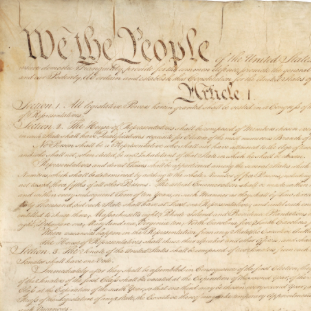One of my primary objectives as a new club president is to devolve a lot of the Board’s responsibility. The primary mechanism in civic organizations to accomplish this is the committee.
Younger people these days are so unfamiliar with civil society, I often worry about even using the word “committee.” Does it have good connotations? Governments have all kinds of committees, subcommittees, blue ribbon panels, etc and they don’t get anything done. At least not anything of value. Maybe we need a better word for it. We could go all corporate and adopt “team,” but I think that carries a lot of bullshit along with it these days too.
Our club was functionally a one, two, or three man show for a number of years. Sure, we had committees, but they were themselves generally one man shows, and those were often Board members. Until very recently, power was firmly rooted in three to four people at most. The rest of the Board was relatively powerless when push came to shove. Now we’ve devolved a lot of that power to the Board, and I’d like to devolve it further still.
Successful organizations aren’t a cult of personality. Successful organizations have processes. A successful organization is a machine that you can plug people into, and mechanisms are in place to keep the machine running even if the operators change. This is a very difficult task in a volunteer-driven organization. The distribution of power is a way to develop new leadership, and ensure when people step out, there’s other people who can step in. It also doesn’t hurt to ease members into the leadership culture.
This year we’re going to give an actual Annual Report to the members that goes beyond just totals for the year. People aren’t going to volunteer for a black box. If an organization has processes, people have to see where they might be able to pitch in. So you have to be open about things. Any civic organization should be open about its operations. Beware leaders who seem to like hiding things. Sometimes you do have internal matters, but it should be the exception rather than the rule.
Speaking of culture: organizational culture is not an accidental thing. It is deliberate, and one area that can’t be separated from leadership. The leadership of an organization sets the culture. If they don’t, actors (sometimes bad actors) will come in and do that for you.
So what’s the lesson here? NRA has a lot of problems that are frankly familiar to me on a smaller scale. Though my club thankfully didn’t have the massive grifting. But I served on a Board where we were a rubber stamp before a power vacuum changed the dynamics. That power vacuum empowered the Board as a body to step up, and things have gotten better. Not perfect, but moving in the right direction. Like NRA, my club also has an overly large Board. What I’m saying is there can be hope. NRA has a leadership problem. The Board are sycophants, sure, but you’d be surprised how much toxic leadership can hold sway over a Board. From my point of view NRA needs to be rid of two people: Wayne LaPierre and Bill Brewer. Wayne because he’s hapless. I don’t believe Wayne could successfully run a Boy Scout troop. Bill Brewer because he’s correctly identified Wayne as a guy who will believe anything, and pay him anything. I don’t believe Brewer has the best interests of NRA at heart, and if we’re rid of Wayne, but Bill gets to name Wayne’s replacement, we just replaced Ack-Mac with a worse parasite.
The rot often seems to run all the way through, but I can promise you it does not. Toxic leadership is a cancer. The first order of business in enacting a turnaround is to remove it. From there, health will probably improve.


